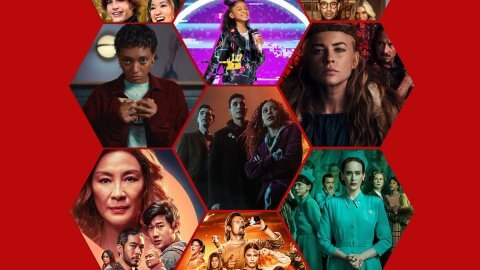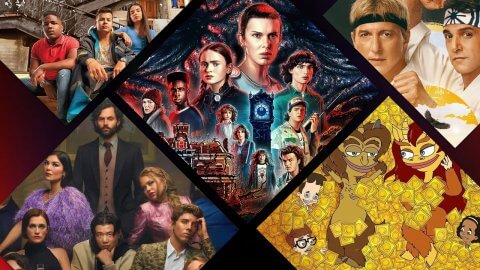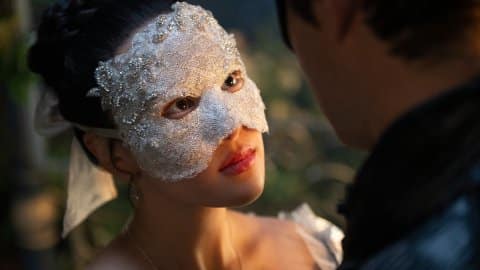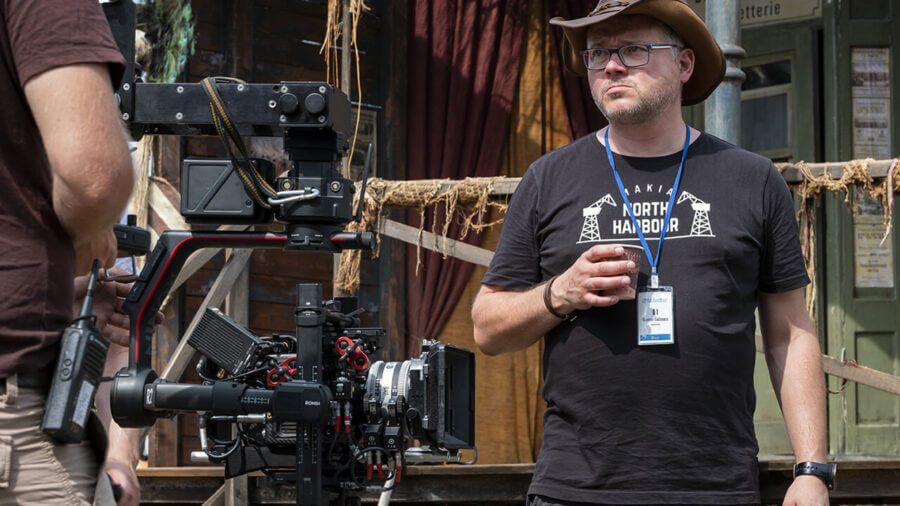
German series Oktoberfest: Beer & Blood, based on the now globally celebrated Oktoberfest, has just landed on Netflix. We managed to chat with the director of the series, Hannu Salonon, to discuss the new project and talk about Netflix in a broader sense too.
Below, we’ll talk about what you can expect from the series, how big the production was, and what Hannu Salonon has been watching recently on Netflix.
Hannu Salonon has been attached to lots of big German projects in the past including Murder by the Lake and Artic Circle.
WoN: Can you take us through what Oktoberfest Beer & Blood is about? What makes it unique and what can you compare it to?
The show is based on a guy from northern Germany named Curt Prank, who’s based on a real person named Georg Lang (aka “Crocodile Georg”), coming to the South with the dream of building a huge tent for 6000 people on Oktoberfest. It’s important to know that until he arrived, the whole festival consisted more or less of a bunch of wooden huts with some farmers showing off their animals and kids having fun on a simple carousel. It was practically impossible for an outsider to operate business-wise on Oktoberfest and no beer brewed outside of Munich was allowed. But this real person Georg Lang managed to pull it off. In 1898, he built the first huge tent and changed Oktoberfest forever.
In our show, Georg Lang is Curt Prank, an outsider from Berlin, a bordello owner, and an innkeeper. Until his arrival, Oktoberfest had more of a backlot feeling than that of a real festival. Prank intends to change all this and his vision is truly eye-opening. He’s an entertainer and a show master – he wants the GRAND thing! Prank establishes, like George Lang did, the idea with the big band and even invented the most famous drinking song of Oktoberfest today. In comparison, the small beer huts had mostly a lonesome guy fiddling on a small stage, in some cases together with a drunken piano man, while people got wasted having openly sexual intercourse. The poor waitresses had to sell themselves off as prostitutes since their earnings consisted only of the tip they received. It was certainly a harsh world – which we also portray in the show.
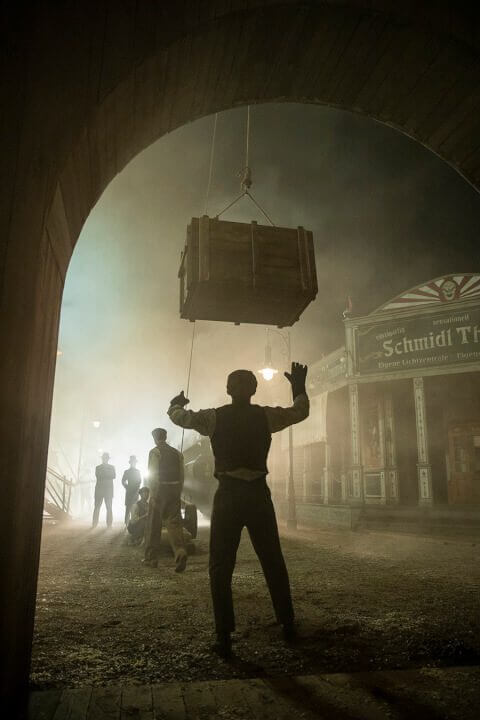
The story of Beer & Blood unfolds in such a way that categories like historical drama or period piece would not sufficiently describe both the nature and the style of the show. It was essential that Beer & Blood provides an almost physical experience that you can feel in your guts. I wanted to dive deep into the real thing – it should be dirty, bloody, and violent, but also emotionally compelling and character-driven. It’s basically an epic journey through a mythically supercharged world, in which basic virtues are constantly being antagonized by the flaws, even inside the mind and the soul of each character. The show explores lost dignity and moral decay combined with endless greed and hunger for power, defining the rules of the game “survival of the fittest”.
One historical detail is highly interesting when we observe the new beginning century and its political and economic changes. Sometime around 1895 Munich still had 150 breweries and by 1905 there were only 10. The ones left were huge, the small ones were gone. The whole way of life had changed in just ten years, and the tradition was wiped out and replaced by an industry with traits of a syndicate. This was real, truly existing Darwinism – and one of the core aspects of the whole show.
WoN: Oktoberfest looks like a huge production – how long did it take the series from get to pen to paper and then to the end of filming?
Yes, it was a very big production, but the thing is, money isn’t everything. It doesn’t buy you a story, it doesn’t really buy you love. Having a smaller budget can present a real challenge, but I believe in a certain kind of practical intelligence in storytelling and producing where you can compensate a lot even if the budget is smaller.
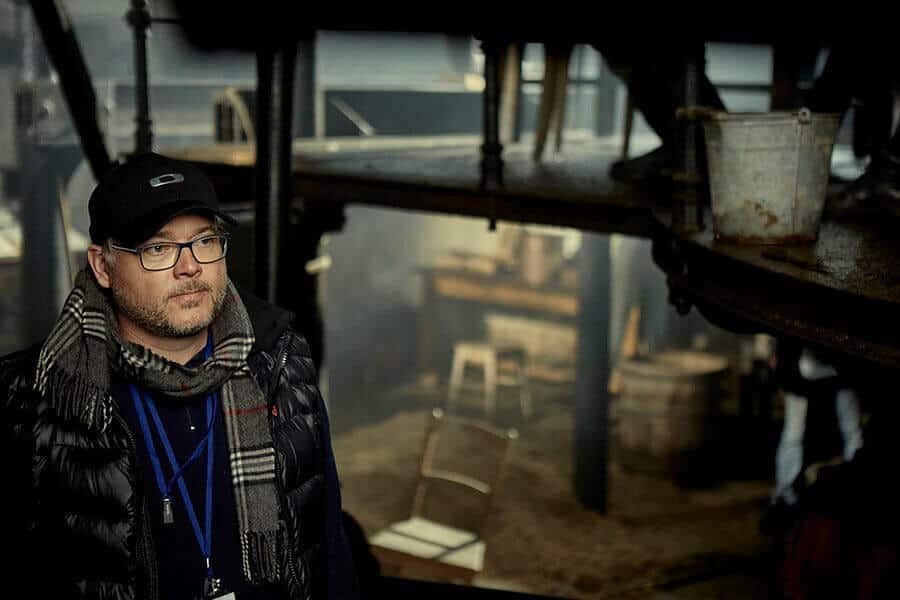
I stepped into the project in the summer of 2018, as I was editing my Nordic show Arctic Circle in Helsinki, Finland. At first I was somewhat skeptical about the setting, but once I read the outlines, written by Ronny Schalk (Dark), I immediately knew this thing hit the nail on the head. It was exactly what my filmmaking is about. It’s about things bigger than life. It goes beyond local. it’s global and yet it’s still a very unique Bavarian thing. It’s murky in a sense, but it has some light moments and dark humor – Beer & Blood describes very well the core of the story. I loved that and I loved Curt Prank!
WoN: From the trailer, we can tell that Oktoberfest goes into great detail with its set and costumes, but just how true-to-history is the story as it’s portrayed?
For the setting and the costumes we did a huge amount of research about the era. This part of the show is very truthful to reality as we know it 120 years later. Aside from telling the story of Georg Lang, the rest of the show is highly fictional. It was essential we waged further on into the fiction to get this “biblical” dimension to the whole story. I never intended to make a documentary, quite the opposite. It wasn’t about observing the events from a distance but enabling the audience to be real participants instead of just casual observers.
WoN: In recent years, people have started celebrating Oktoberfest all over the world, not just in Germany. What is it that makes the celebrations so endearing?
I feel that people want to go back to the basics. In the world of social media and instant communication, it’s certainly appealing to return to the ‘real word’ once in a while. At Oktoberfest you meet people, you taste things, you feel things, you smell things. It’s human beings getting together. Lots of people do miss that greatly, even before Covid-19. Oktoberfest is really about the haptics – make the people feel the party in their guts. That was one of my main goals in terms of the look and feel of the whole show.
WoN: Dark has been a global phenomenon and other international titles continue to do well outside of their original language – what do you attribute this to and does the way you create knowing you’re reaching a bigger global audience with different languages and cultures?
That’s a really interesting question; it’s a relatively new phenomenon that we all keep studying and it’s great that American audiences embrace shows like Dark (and hopefully Beer & Blood!). The level and the quality of the storytelling has greatly improved. We’re getting there, thanks to streaming, in our case Netflix. A revolution has started that cannot be stopped. It’s a true shift in the paradigm of classic TV.
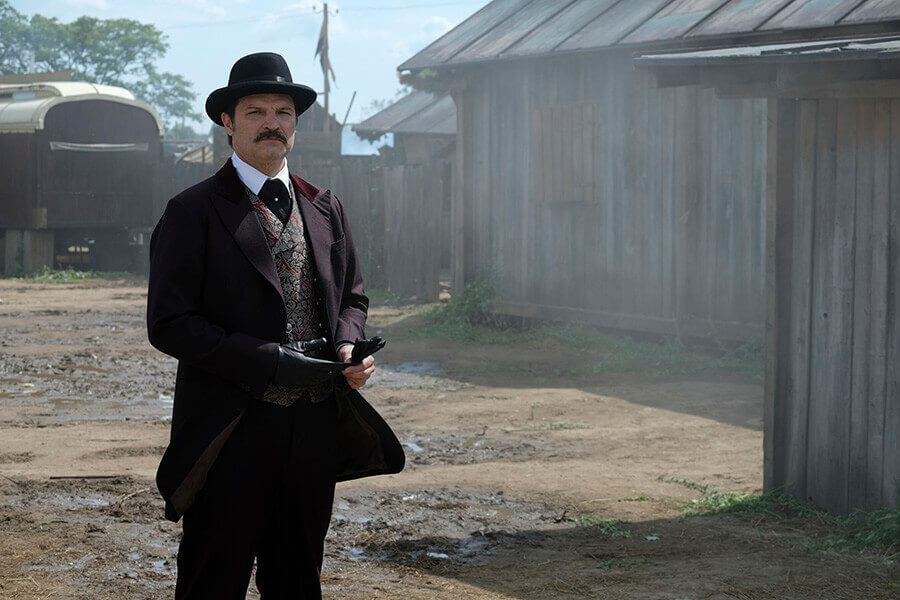
WoN: And how will you be channelling the spirit of the Oktoberfest this year?
Since no real Oktoberfest takes place this year (due to Covid-19), the only thing remaining is to watch our show – but I mean this in a positive way. Of course our show goes beyond the mere folk festival. The series explores Oktoberfest and shows the real dimension of this very physical experience. Not a real substitute, but we do kick it into a higher gear, so you might get the real feeling.
WoN: What are you currently watching on Netflix? Any recommendations for our readers?
I love Ozark and am really looking forward to watching the last season. Mindhunter too, what Cameron Britton did as Ed Kemper was just phenomenal in addition to the cool, distanced stylistics of the whole thing. I don’t have to mention Dark. I’m a big fan. These projects aren’t that new, but that’s the great thing about Netflix. It’s always there, nonlinear, as you want to have it. The last movie I watched on Netflix was Hidden Figures. My wife and I just loved it – great storytelling, great acting. I very much look forward to seeing stuff like that on Netflix in future.
With thanks to Hannu Salonen for answering our questions. Oktoberfest: Beer & Blood is streaming globally on Netflix as of October 1st, 2020.

